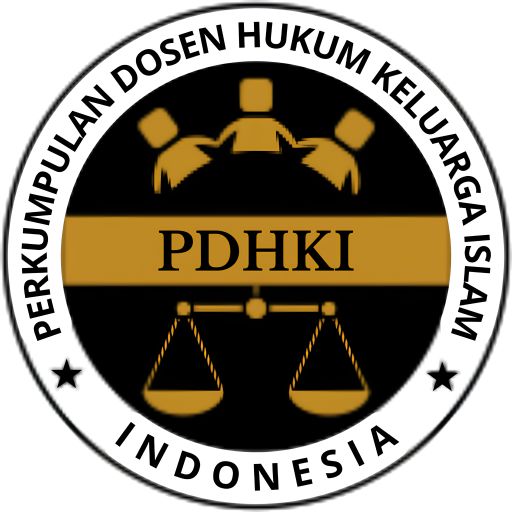Penentuan Mahar Berdasarkan Stratifikasi Sosial Oleh Masyarakat Muslim Wakatobi Perspektif Maslahah Mursalah
DOI:
https://doi.org/10.31332/kalosara.v3i2.7258Abstract
The research aims to analyze the determination of dowry based on social stratification and to analyze the legal position of determining dowry based on social stratification by the Muslim community, Sowa sub-district, Togo Binongko sub-district, Wakatobi district from the Maslahah Murlah perspective. The research uses descriptive qualitative research using a legal research typology with a casetic approach and Islamic law. qualitative research method with qualitative descriptive research type. Data collection in this research was through observation, interviews and documentation. The data analysis includes data display, data reduction and data verification. The results of this research show that the determination of the dowry in marriages in the community of Sowa sub-district, Togo Binongko sub-district, the nominal size of the dowry is based on the social stratification of women in society, in this case the woman's clan. In the Sowa Village Community, Togo Binongko District, there are three clans, namely the Siolimbona clan, the Ode clan and the Maradika clan. The dowry is determined during the patantu'a (determination) procession. In the patantu'a (Determination) procession, the male family comes to the residence of the woman to be married to discuss several matters related to the marriage, one of which is the dowry. The dowry is determined based on the woman's clan. The woman's surname is determined through genealogical tracing by traditional leaders based on information provided by the woman's family, in this case the woman's father. In the maslahah murrasa perspective, the customary rules that apply in the Sowa sub-district bring benefits, namely avoiding conflict in the form of arguments between the two sides of the family which arise as a result of a clan feeling that it is not respected or appreciated. The legal position of determining the dowry based on social initiation in Sowa Village, Togo Binongko District, Wakatobi Regency is as a method or method for establishing a legal basis that does not conflict with sharia, does not cause harm, and does not eliminate benefits.
References
Abdulsyani. (1994).Sosiologi Skematika, Teori, dan Terapan. Jakarta: Bumi Aksara.
Ahmadi, A. (2003). Ilmu Sosial Budaya Dasar. Jakarta: PT Rineka Cipta.
Al-Fauzan, Saleh. (2005). Fiqih Sehari-Hari. Jakarta: Gema Insani Press.
Ali, Muhammad. (2020). Fiqih Munakahat. Lampung: Laduny Alifatma.
Azzam, Muhammad Abdul Aziz. (2009). Fiqh Munakahat. Jakarta: Amzah.
Az-zuhaily, Wahbah. (2006). Al-Fiqh al-Islamy wa Adillatuhu Juz IX. Suriah: Darul Fikri.
Abdurrahman. (1992). Kompilasi Hukum Islam di Indonesia. Jakarta: Akademi Pressindo.
Abidin, Slamet dkk. (1999). Fikih Munakahat I. Bandung: CV Pustaka Setia.
Bagong Suyanto & J. Dwi Narwoko. (2007). Sosiologi:Teks Pengantar &Terapan. Jakarta: Kencana Prenada Media Group.
Bahtiar, Wardi. (1997). Metodologi Penelitian Dakwah. Jakarta : Logos.
Cohen, Bruce J. (1992). Sosiologi Suatu Pengantar. Jakarta: Rineka Cipta.
Departemen Agama RI. (2004). Al-Qur’an Dan Terjemahan. Jakarta: Pustaka Amani.
Deddy, M. (2014). Komunikasi Antar Budaya. Bandung: PT. Remaja Rosdakarya.
Daly, Peunoh. (2006). Hukum Perkawinan Islam. Jakarta: Bulan Bintang.
Ghazaly, Rahman A. (2003). Fiqih Munakahat. Jakarta: Kencana Prenada Media Group.
Hadikusuma, Hilman. (1995). Pengantar Ilmu Hukum Adat. Bandung: PT. Citra Aditya Bakti.
Hakim, Rahmat. (2000). Hukum Perkawinan Islam. Bandung: CV Pustaka Setia.
Idris, Irfan &Sastrawati N. (2010). Sosiologi Politik. Makassar: Alauddin Press.
Junaidi, Dedi. (2003). Bimbingan Perkawinan: Membina Keluarga Sakinah Menurut Al-Qur’an dan As-Sunnah. Jakarta: Akademika Pressido.
Kuat Ismanto. (2006). Manajemen Syariah. Yogyakarta: Pustaka Pelajar.
Khatib, Ramyulis Tuanku. (1996). Pendidikan Islam Dalam Rumah Tangga. Jakarta: Kalam Mulia.
Kaelani HD. (2000). Islam Dan Aspek-Aspek Kemasyarakatan. Jakarta: Bumi Aksara.
Kurnia, MR. (2005). Memadukan Dakwah Dan Keharmonisan Rumah Tangga. Bogor: Al-Azhar Press.
Muhammad, Syekh bin Umar An-Nawawi. (2002). Menggapai Keharmonisan Suami Istri (Judul Asli Syarhu Uqud Al-Lujjain Fii bayani Huquq Az-Zaujaini) Terj: Uqudulijain. Surabaya: Ampel Mulia.

























